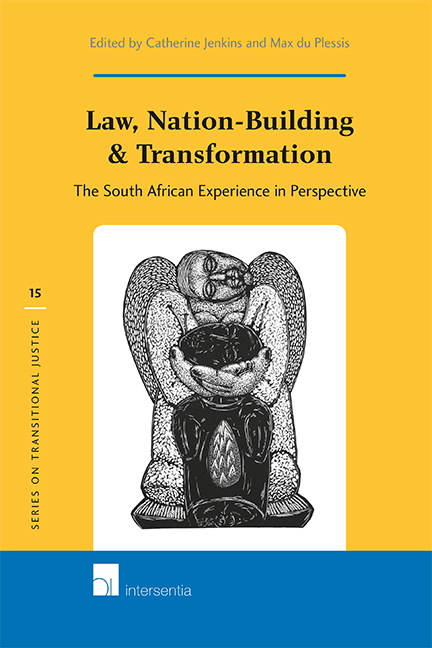
-
Select format
-
- Publisher:
- Intersentia
- Publication date:
- December 2020
- January 2014
- ISBN:
- 9781839700668
- 9781780681849
- Dimensions:
- Weight & Pages:
- Dimensions:
- Weight & Pages:
- Series:
- Series on Transitional Justice
- Subjects:
- Law, Human Rights
You may already have access via personal or institutional login- Series:
- Series on Transitional Justice
- Subjects:
- Law, Human Rights
Book description
In this volume, fifteen contributors from the disciplines of law, politics and sociology reflect on South Africa's transition to democracy and the challenges of transformation and nation-building that have confronted the country since the first democratic elections of 1994. The range of topics covered is expansive, in keeping with a broader than usual definition of transitional justice which, it is argued, is more appropriate for states faced with the mammoth tasks of reform and institution-building in a context in which democracy has never been firmly rooted and the existence of widespread poverty gives rise to the dual demands for both bread and freedom. In the case of South Africa, the post-apartheid era has been characterised by wide-ranging attempts at transformation and nation-building, from the well-known Truth and Reconciliation Commission to reforms in education and policing, the promotion of women's rights, the reform of land law, the provision of basic services to hundreds of thousands of poor households, a new framework for freedom of expression, and the transformation of the judiciary. In the light of South Africa's commitment to a new constitutional dispensation and to legal regulation, this volume focuses in particular, but not exclusively, on the role that law and lawyers have played in social and political change in South Africa in the post-apartheid era. It sets the South African experience in historical and comparative perspective and considers whether any lessons may be learnt for the field of transitional justice.
Contents
Metrics
Full text views
Full text views help Loading metrics...
Loading metrics...
* Views captured on Cambridge Core between #date#. This data will be updated every 24 hours.
Usage data cannot currently be displayed.
Accessibility standard: Unknown
Why this information is here
This section outlines the accessibility features of this content - including support for screen readers, full keyboard navigation and high-contrast display options. This may not be relevant for you.
Accessibility Information
Accessibility compliance for the PDF of this book is currently unknown and may be updated in the future.


